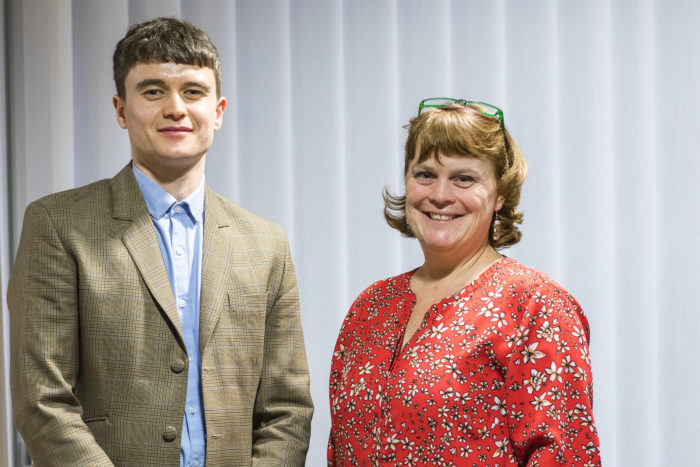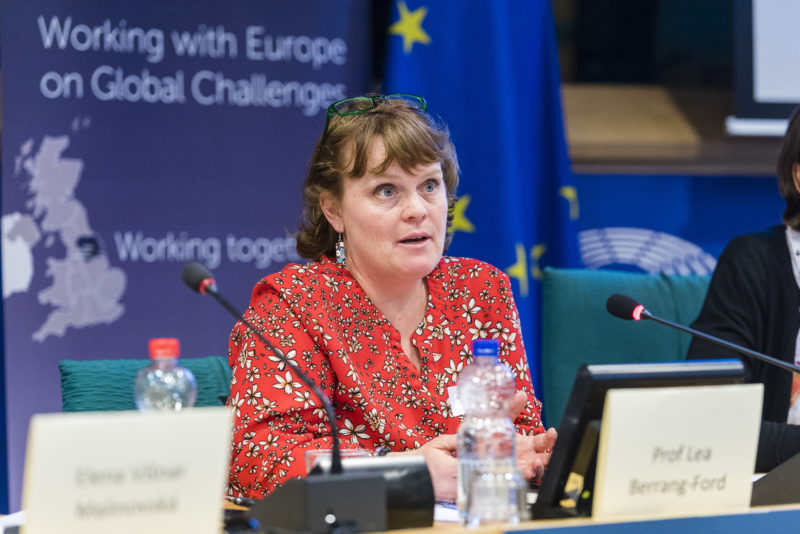Priestley Centre Chair in Climate and Health, Professor Lea Berrang Ford, was a speaker at an event at the European Parliament in Brussels focusing on key climate change policy areas and research into solutions.
Prof Berrang Ford, speaking on behalf of the University of Leeds, was joined by Prof Lisa Emberson, Director of the Stockholm Environment Institute at the University of York, and Prof Duncan Cameron, Co-Director of the P3 Centre at the University of Sheffield. The event, on 20 February 2019, was organised by the White Rose Brussels office.
Host Seb Dance, MEP for London, opened the event by discussing his experience of people’s attitudes towards climate change from his position in the European Parliament, particularly the ENVI (Environment, Public Health and Food Safety) committee. He noted that since his election in 2014, the level of public concern for climate change has grown, especially among young people, as indicated by the ongoing school strikes. The clear evidence that the public is willing to go much further indicates, he said, that it is “time for politicians to start challenging the existing orthodoxies”.
Keynote speaker Ms Gerda Verburg, Assistant Secretary-General to the United Nations and Coordinator of the Scaling Up Nutrition movement, reiterated the sentiment, stressing that ambitious climate goals can only be achieved by integrating and coordinating policy areas. She called for strong leadership, recognising that “politics is about stepping out of your comfort zone”.
Professor Lea Berrang Ford, who is lead author of the 2017 UN environmental report, “The Adaptation Gap” clarified the metrics and the current assessments of adaptation progress being carried out at the global level. She explained that adaptation is emerging through extensive planning and groundwork activities, vulnerability assessment, strategic thinking and prioritising. However, there is very little actual action and implementation, especially outside the EU, and almost no evaluation or consideration given to whether we are effectively adapting.

Competition winner Declan Sean Kenny and Prof Lea Berrang Ford at the White Rose Brussels event
The speakers were followed by University of Leeds PhD researcher Declan Sean Kenny, of the School of Politics and International Studies, who was the winner of the 2018 White Rose Brussels Article Competition. He raised a challenge to the Commission: why are big businesses (like Shell and BP) still exempt from having to pay for emitting carbon emissions? Given the urgency of the climate crisis, and the expectation that individuals and cities will have to adapt, he questioned the legitimacy of the Commission’s decision to extend this free allocation of emissions credits for another decade. (Read Declan’s winning essay here.)
Another Priestley Centre researcher, Dr Chris Smith, was runner up in the article competition. Read Chris’s article here and the full article about the event here.


